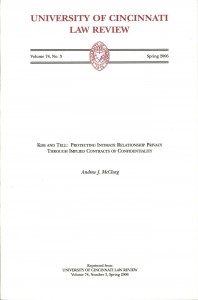 Andrew J. McClurg, Kiss and Tell: Protecting Intimate Relationship Privacy Through Implied Contracts of Confidentiality, 74 University of Cincinnati Law Review 887-940 (2006).
Andrew J. McClurg, Kiss and Tell: Protecting Intimate Relationship Privacy Through Implied Contracts of Confidentiality, 74 University of Cincinnati Law Review 887-940 (2006).
In today’s tell-all world, where anyone with internet access can become a “media outlet,” growing numbers of people are finding themselves the victims of former intimate partners who mass disseminate private, highly embarrassing information, including photos and videotapes, about or involving them.
In theory, tort law provides the perfect (and exclusive) remedy when one gives widespread publicity to embarrassing, non-newsworthy private facts about a person in a manner that reasonable persons would consider highly offensive. In practice, however, this claim—known as the tort of “public disclosure of private facts”—offers virtually no chance of recovery by plaintiffs. The tort sustained severe, possibly mortal wounds in a series of U.S. Supreme Court cases culminating in Florida Star v. B.J.F. (1989). In its current formulation, it is quite possible that the public disclosure tort is unconstitutional under the First Amendment.
The demise of the public disclosure tort has left a large gap in privacy protection for victims of offensive disclosures of private information. This Article proposes a theory to partially fill that gap in some public disclosure situations arising from intimate relationships. Specifically, expanding on an argument advanced by Professor Eugene Volokh that the only constitutionally permissible means for enforcing personal information privacy is contract law, the article argues that an implied contract of confidentiality arises in intimate relationships that the parties will not disseminate through an instrument of mass communication private, embarrassing information about the other acquired during the relationship.


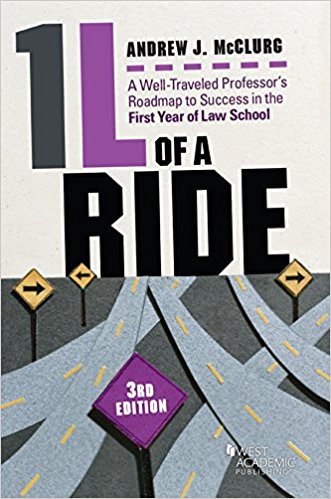
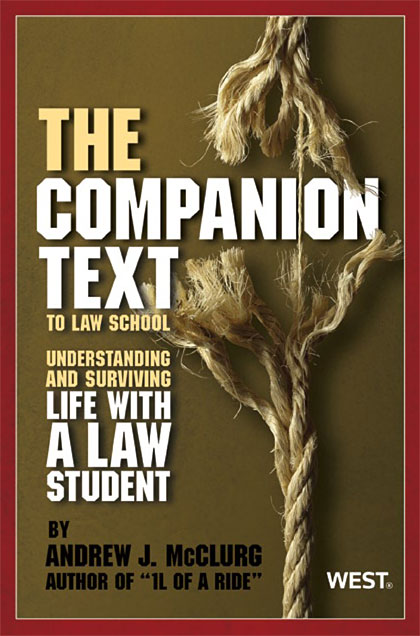




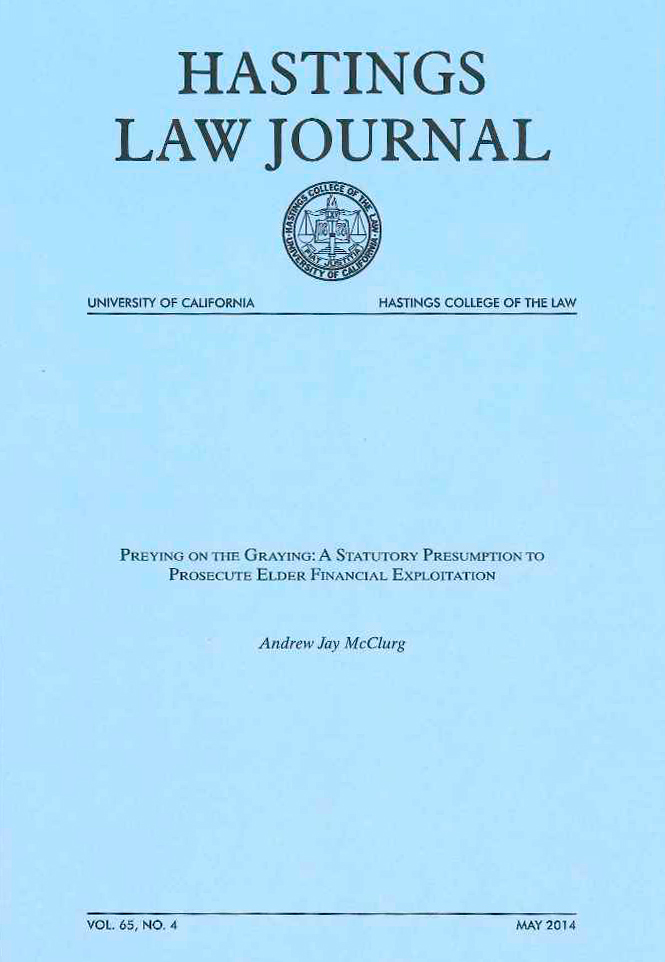
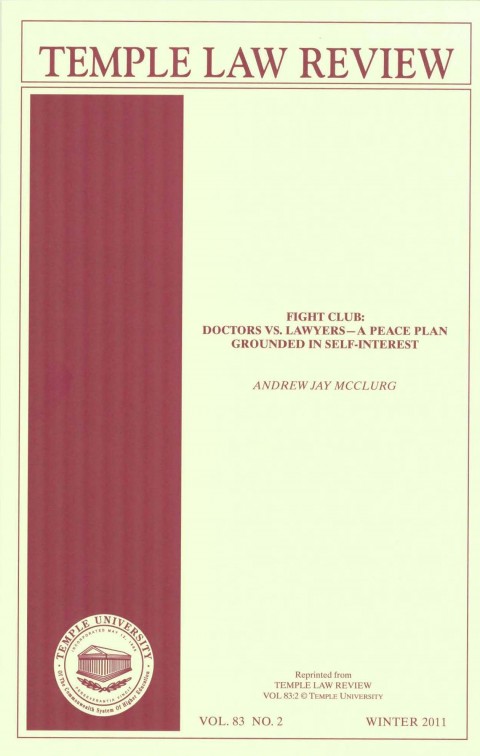
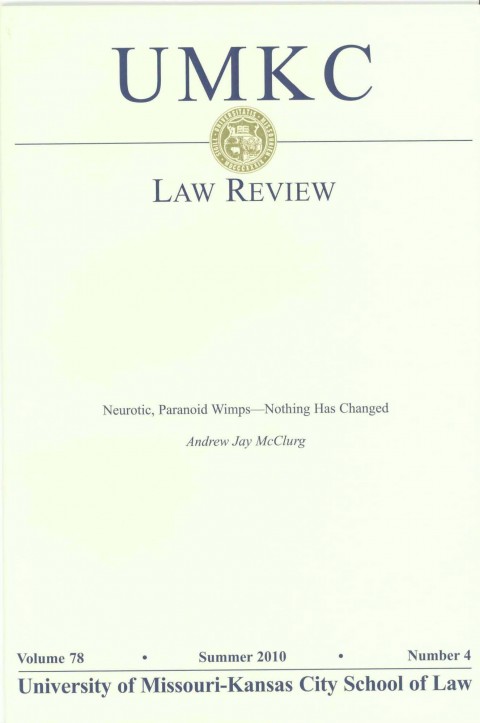
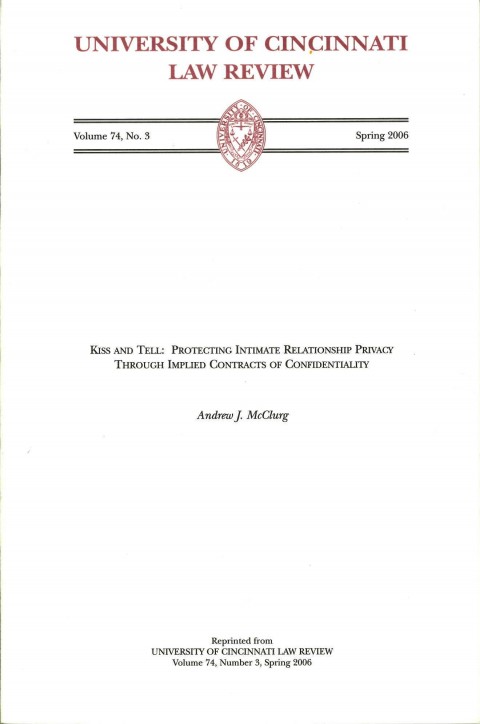
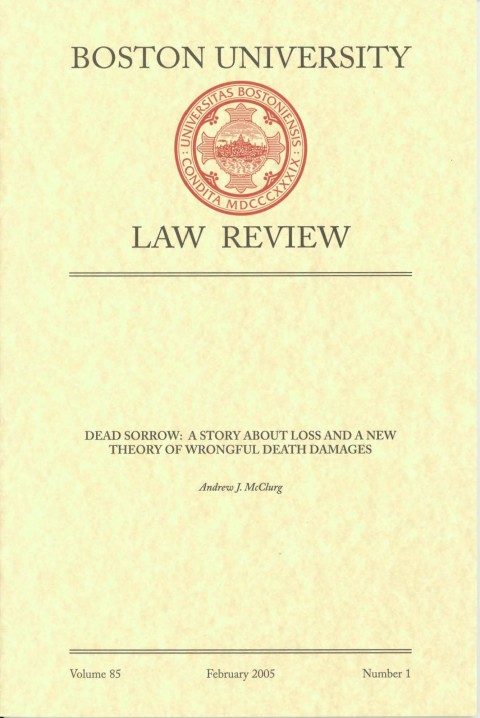
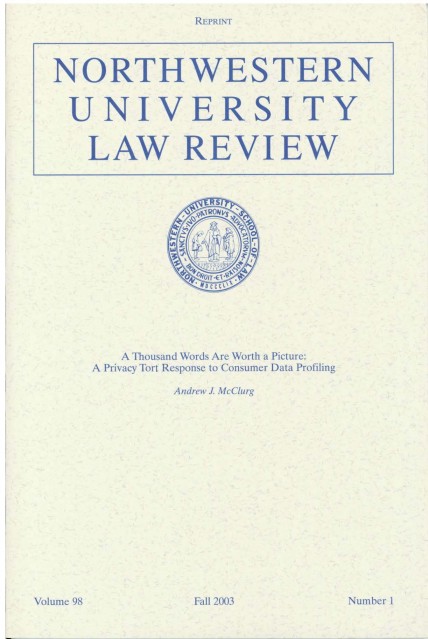
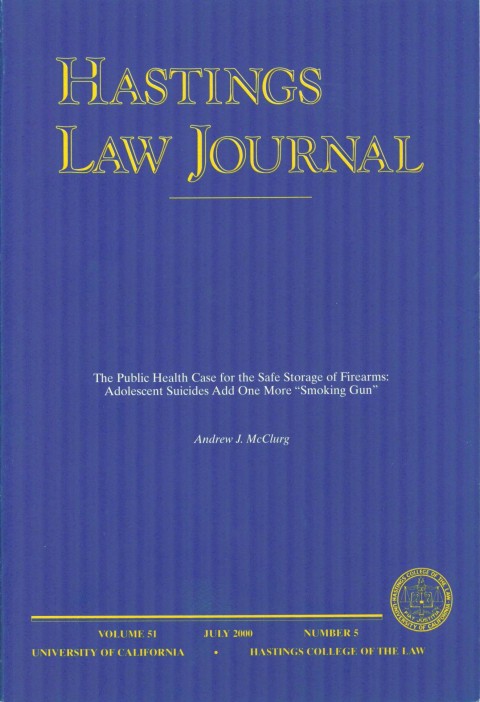
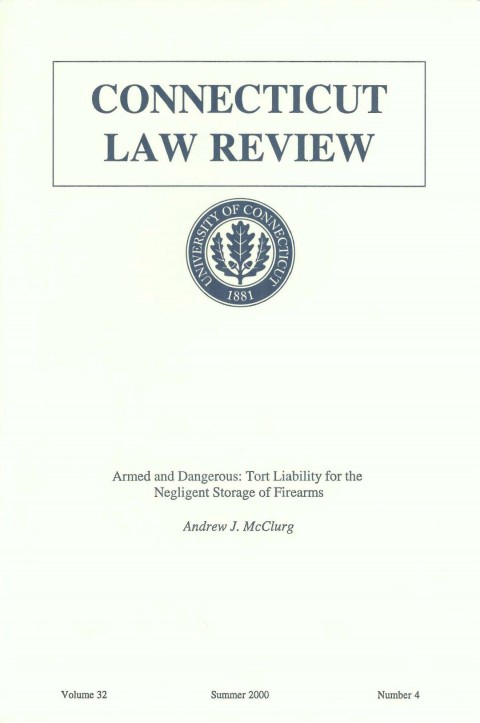
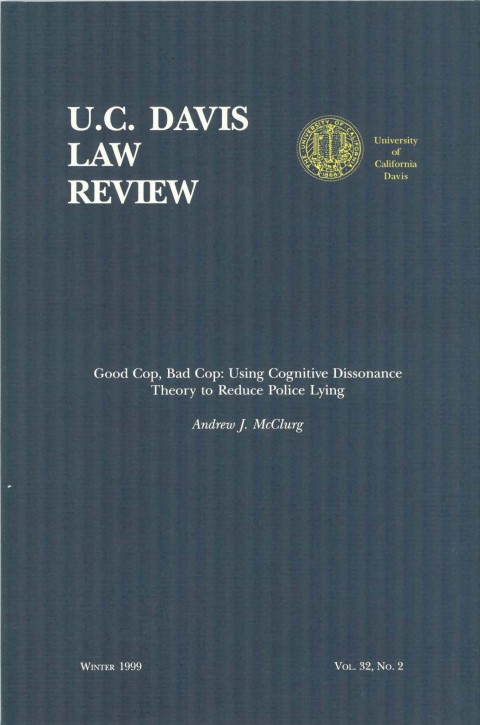
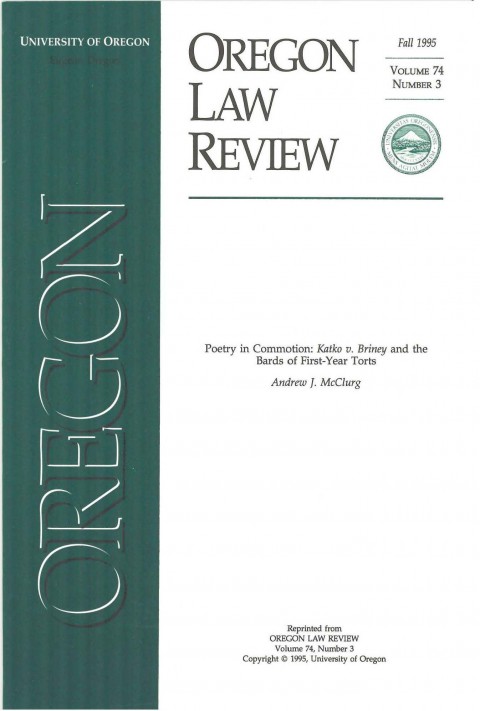
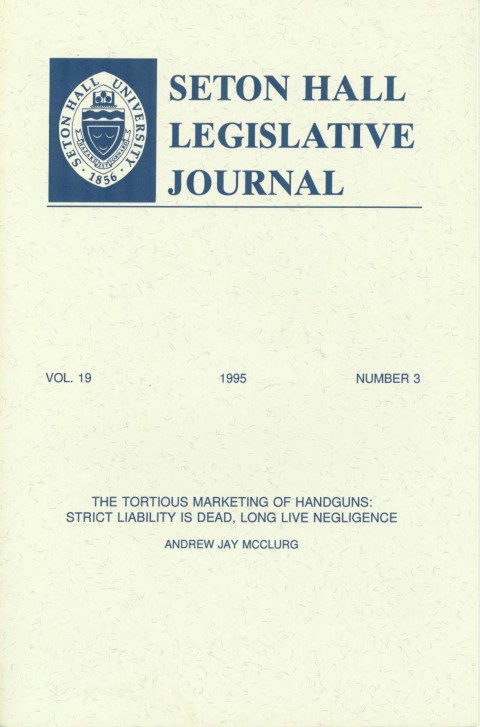
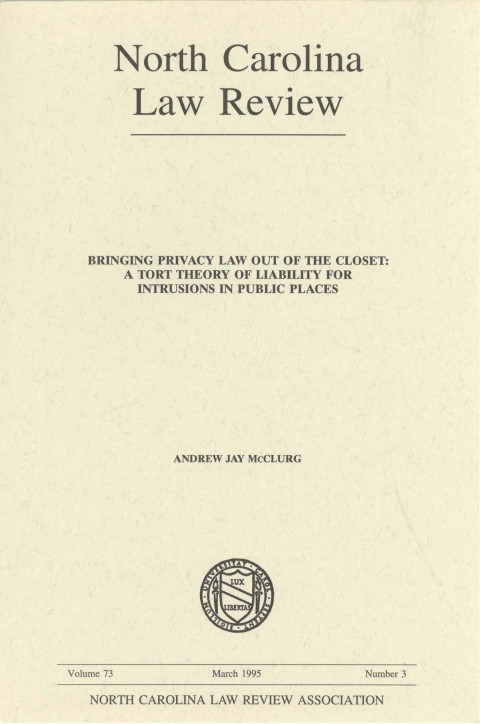
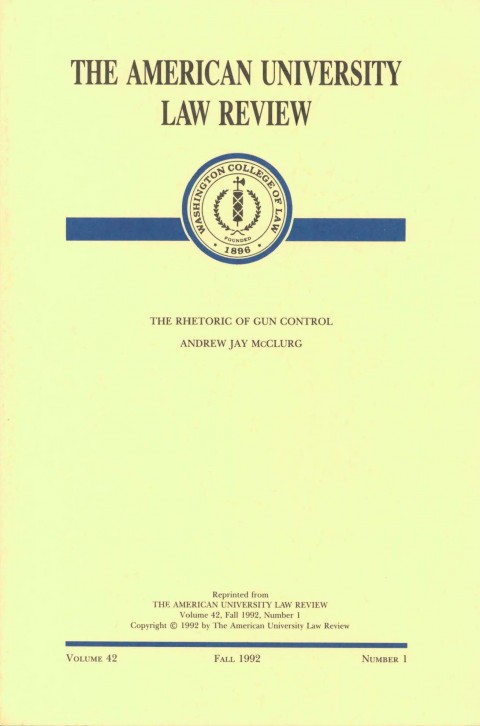
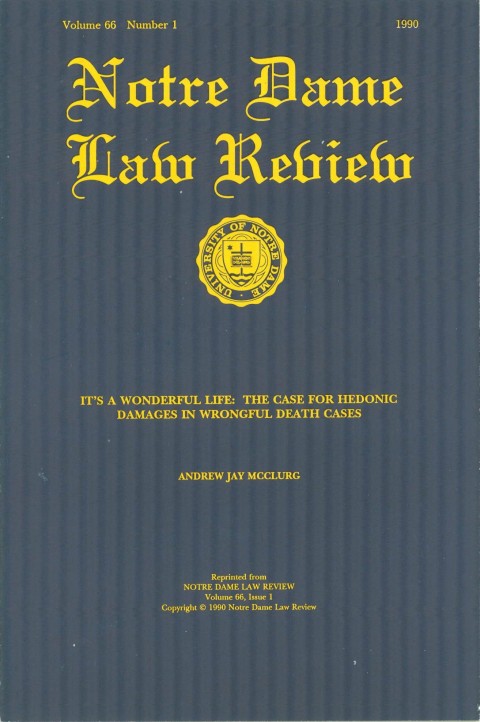
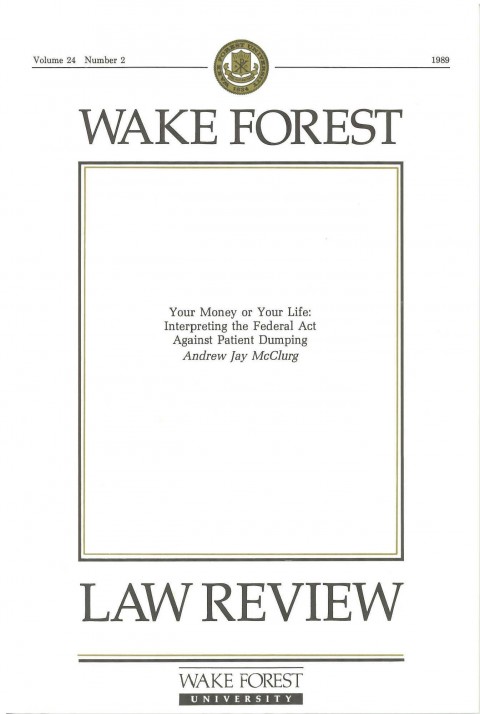
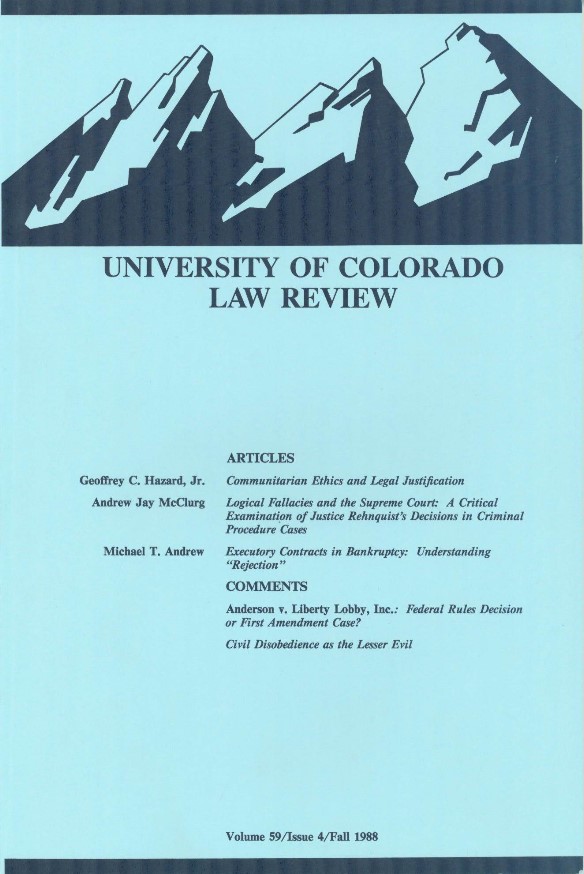

It is funny anyway. Most of the people are set up so what do you do just get an agreed contract with whom ever you are interested in so there will not be misunderstanding